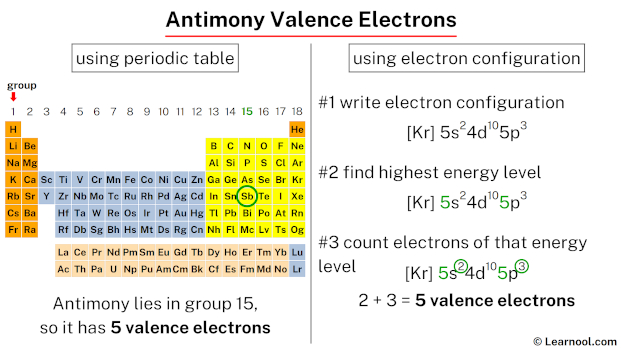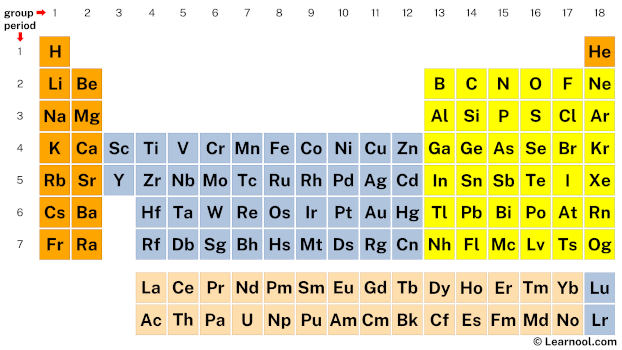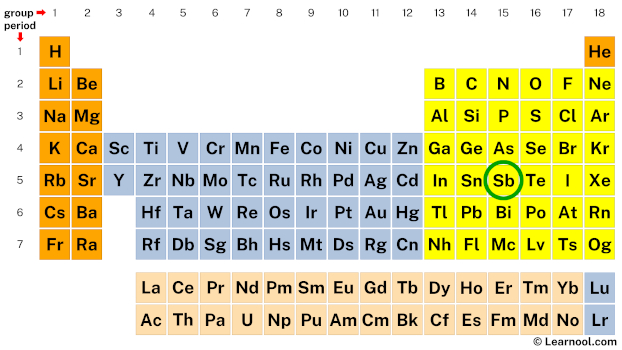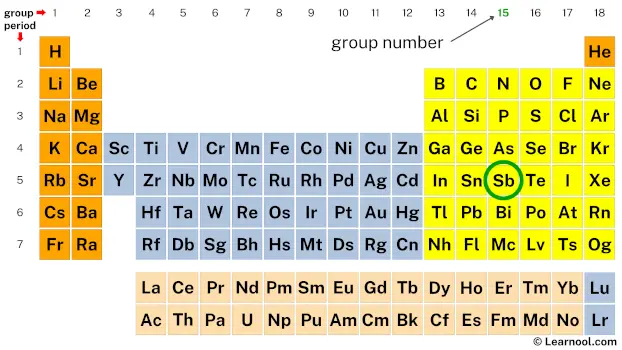
Antimony is classified as a metalloid and possesses 5 valence electrons. The valence electrons of antimony can be determined by referring to its position on the periodic table or by using its electron configuration.
Methods
Using periodic table

Get the periodic table having the chemical elements marked on it as mentioned above.
Now mark the location of antimony on the periodic table.

Next, mark the group number of antimony on the periodic table.

The valence electrons of each main-group element can be determined by the column in which it is located.
(i.e., all group 1 elements have 1 valence electron, all group 2 elements have 2 valence electrons, skip the transition metals… then, all group 13 elements have 3 valence electrons, all group 14 elements have 4 valence electrons, and so on up to group 18 elements)
Since antimony is in group 15, it has 5 valence electrons.
Using electron configuration
- First, write electron configuration of antimony
The electron configuration of antimony is [Kr] 5s2 4d10 5p3.
Learn how to find: Antimony electron configuration
- Second, find highest energy level in electron configuration

In the above electron configuration, the highest energy level (5) is marked with green color.
- Finally, count electrons of that energy level

The 5th energy level contains 5s and 5p subshells. There are 2 electrons in the 5s subshell and 3 electrons in the 5p subshell. So antimony has a total of 2 + 3 = 5 valence electrons.
Next: Tellurium valence electrons
Related
More topics
External links
- https://materials.gelsonluz.com/2019/08/valence-electrons-in-antimony-sb-facts.html
- https://periodictable.me/antimony-valence-electrons/
Deep
Learnool.com was founded by Deep Rana, who is a mechanical engineer by profession and a blogger by passion. He has a good conceptual knowledge on different educational topics and he provides the same on this website. He loves to learn something new everyday and believes that the best utilization of free time is developing a new skill.
